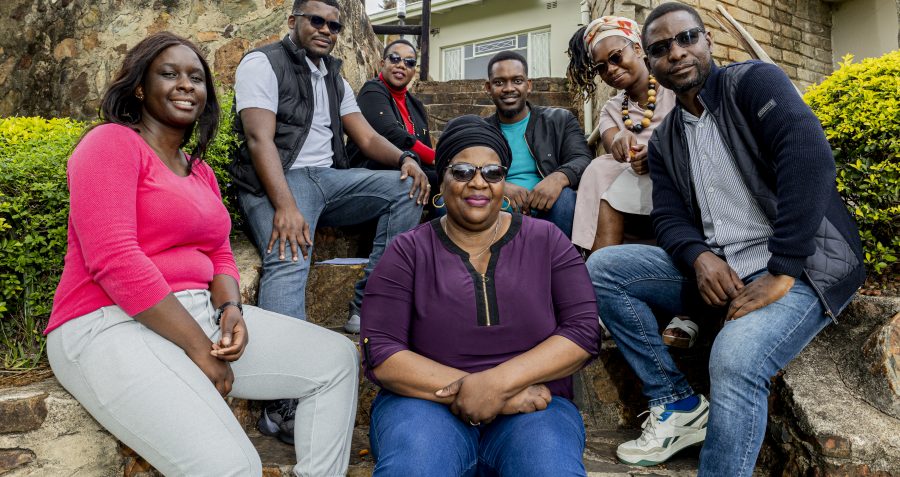A Message from our Chair of the Board, Nana K Poku

A World AIDS Day message from our Chair of the Board of Trustees, Nana K Poku.
Two decades ago, the HIV pandemic seemed unstoppable. More than 2.5 million people were acquiring HIV every year and two million lives a year were lost to AIDS.
Today, there is hope for those living with HIV and AIDS. Three-quarters of those living with HIV –roughly 30 million people– are receiving treatment. Medical advances in preventing and treating HIV have transformed what used to be before a death sentence into a manageable chronic condition, but this success has bred complacency and a diminished sense of urgency. AIDS has ceased to be at the forefront of the public’s attention. Yet, it is still destroying lives, particularly in marginalised communities where lives are often shamefully undervalued and underserved.
So far, the world is not on track to end the HIV pandemic soon. New infections are not decreasing fast enough for the HIV pandemic to be brought under control by 2030. Beyond sub-Saharan Africa, declines in new infections have been small and numbers are rising alarmingly in some countries. New infections have increased by 49% in eastern Europe and Central Asia since 2010 and by 61% in the Middle East and North Africa. These trends are driven primarily by a lack of prevention services for marginalised groups and key populations and the barriers posed by punitive laws, violence and social stigma and discrimination. Consequently, the HIV pandemic continues to affect key populations more than the general population. In sub-Saharan Africa, women and girls accounted for 63% of all new infections. Failure to protect people within key and other high priority populations against HIV will prolong the HIV pandemic and impose a huge cost on the affected countries.
Heading into World AIDS Day 2023, we must revitalise our efforts to bring an end to an HIV epidemic that has raged on for too long. There is a clear need to redefine what prevention looks like and it needs to be led by communities of affected people. This year UNAIDS, together with communities and partners will commemorate World AIDS Day 2023, under the theme ‘Let Communities Lead’. For this to become a reality, there is an urgent need for governments and donors to reverse backsliding in financial commitments to community-led organisations. Second, a plan needs to be outlined for getting HIV prevention services to all groups in a fair way. With new options for treating AIDS and preventing HIV now being available, the world could bend the curve of HIV, but only if investment in the delivery of services fully involves community-led organisations. Too often, decision-makers treat community organisations as problems to be managed rather than as organisations fundamental to effective provision of leadership and change agents needed for ending the HIV pandemic.
Through partnership empowering community-led organisations is essential so that they can develop their own strategies and reach those most in need of access to prevention services. There is no one technique, or one programmatic response that will work in the variety of human communities worst affected by HIV and AIDS; and because marginalised populations are most at risk, it matters greatly that we continue to work collaboratively with community-based organisations to concentrates on communities—and on utterly fundamental matters such as accessible sexual and reproductive health clinics, prevention programmes and HIV testing. Turning the infection curve is possible but only if we change our approach and value communities more.
Nana K Poku
Chair of the Board of Trustees, Frontline AIDS

